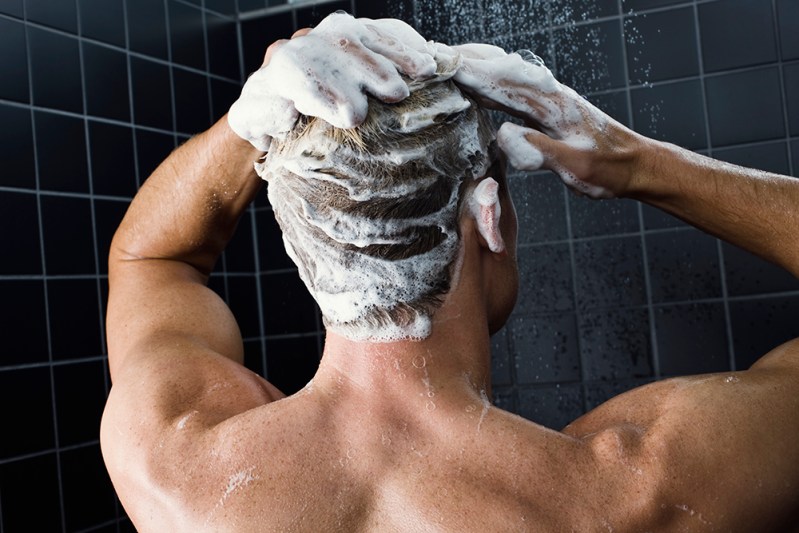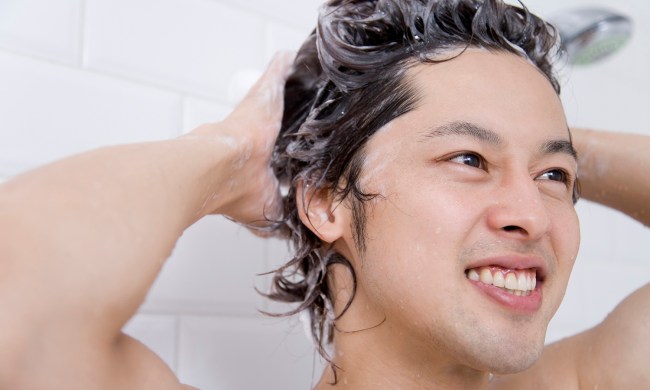
For months now, we’ve all been told to rigorously wash our hands to prevent the spread of germs and COVID-19 (to be honest, we should’ve been doing this well before coronavirus). While most of us have stacked up on sanitizers and soaps and have been following the twenty-second hand washing rule, how often should we be washing our hair?
If you’re worried about getting infected through touching droplets on your mane, doctors say your chances are pretty slim as long as you’re practicing social distancing.
“You have someone who sneezes, and they have to have X amount of virus in the sneeze,” Dr. Andrew Janowski, instructor of pediatric infectious diseases at Washington University School of Medicine St. Louis Children’s Hospital, told the New York Times. “Then there has to be so many drops that land on you. Then you have to touch that part of your hair or clothing that has those droplets, which already have a significant reduction in viral particles. Then you have to touch that, and then touch whatever part of your face, to come into contact with it. When you go through the string of events that must occur, such an extended number of things have to happen just right. That makes it a very low risk.”
But one thing to note, though, is that there have not been any studies on how long the coronavirus can last on hair follicles.
If you still want to minimize your chances of catching COVID-19 via your hair, Hadley King, a New York-based dermatologist has some suggestions.
“Generally speaking, viruses don’t thrive on porous surfaces like hair … [but] if you’re going out into areas that could possibly be contaminated, then it certainly wouldn’t hurt to wash your hair when you get home,” Dr. King told Refinery 29. “We know that this virus infects us through our mucosal surfaces, and the skin’s barrier is semi-permeable, but the surface of the hair is not.”
And there’s no need to use any heavy-duty cleansers for your hair. The shampoo you regularly use should do the trick.
“All shampoos contain surfactants that will remove dirt, oil, bacteria, and viruses,” she said.
And just like your face, Dr. King recommends not touching your hair when you’re out and about. To prevent hair touching, guys with longer manes should pull their hair back into a manbun or pony tail. Frequently washing your hair brush with warm water won’t hurt, either.
“If dead hair is collecting on a table or in a hairbrush and mucus containing viral particles come into contact with it, the virus could potentially live on that surface for 2-3 days,” Dr. King told Refinery 29.
So there you have it: The chances for contracting coronavirus through your hair is pretty slim, but if you’re feeling extra cautious, washing your hair with a gentle shampoo after being outside will blast any bacteria or germs you accumulated. As always, wear a mask, practice social distancing, and stay at home whenever possible.


